Principal Investigator
Locations
Study Code
Study Status
Abstract
The objective of the BEAT-MS study is to compare the efficacy, safety, immunologic effects, and cost-effectiveness of myeloablative and immunoablative therapy followed by autologous hematopoietic stem cell transplant (AHSCT) versus the best available approved therapy. The study will focus on participants with relapsing multiple sclerosis (MS) and continued disease activity despite prior treatment with a currently approved disease modifying therapy.
BEAT-MS is a multi-center prospective rater-blinded randomized controlled clinical trial. 156 participants will be randomized 1:1 to receive either AHSCT or a currently approved disease modifying therapy.

About This Study
The purpose of the BEAT-MS study is to compare chemotherapy followed by autologous hematopoietic stem cell transplant (AHSCT) – a type of bone marrow transplantation – to the most effective currently approved medicines regularly used to treat relapsing MS (called BAT for “best available therapy”).
AHSCT replaces the immune cells that are causing MS. It has been shown to improve relapsing MS in patients for whom regular medicines did not work. The treatment involves, first, collecting an individual’s own bone marrow stem cells. Next, these stem cells are then frozen and stored. Then, the patient receives chemotherapy, which depletes the cells in their immune system that include those cells implicated in causing MS. Finally, the stored stem cells are thawed and given back to the patient through an infusion.
The best available treatments are chosen from among those recently approved for the treatment of MS that have not yet been tried by the study participant.
